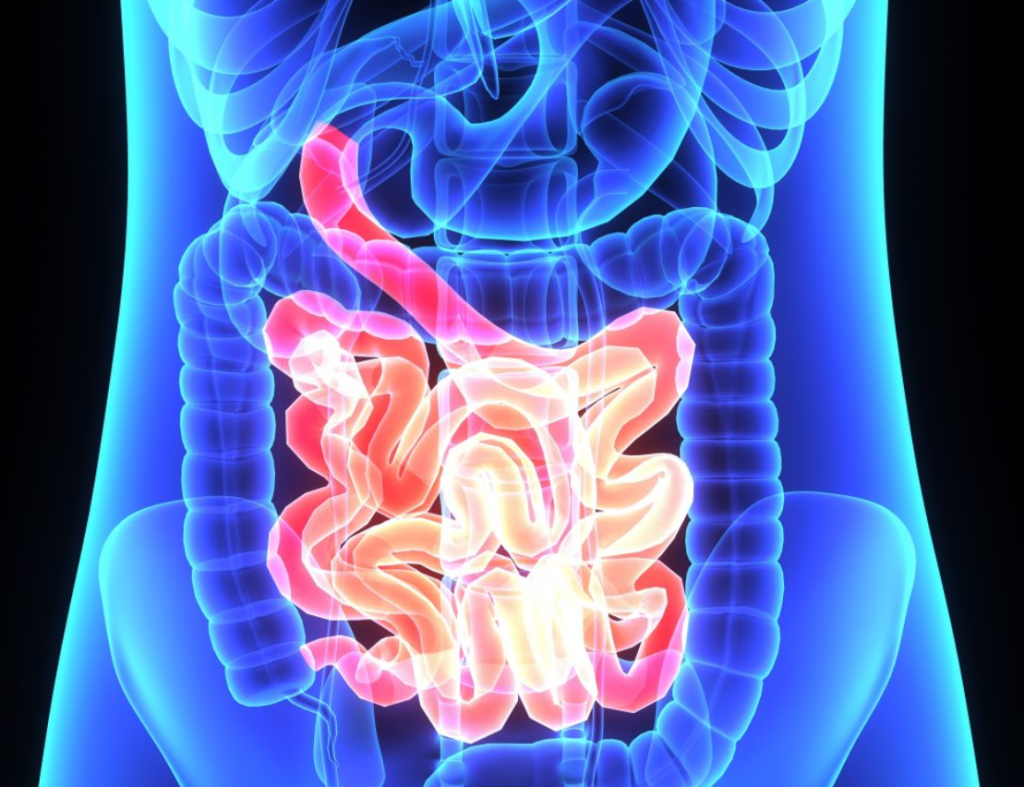I’ve always believed, based on the available evidence, that more than 150 million Americans, about 50% of the population, suffer from small intestinal bacterial overgrowth, SIBO. take the 100 million people with fatty liver, for example. Studies have shown that 50 percent of people with fatty liver test positive for SIBO, or 50 million people. What about the 60 or 70 million people with irritable bowel syndrome? Studies vary, but about 40% test positive for SIBO, which adds another 24+ million people. Add up the number of people who test positive for SIBO, including type 2 diabetes, obesity, autoimmune diseases, food intolerances, restless leg syndrome, psoriasis, rosacea, neurodegenerative diseases, etc., and you can see we’re talking about a lot of people.

In SIBO, in all 24 feet of the small intestine, trillions of microbes live and die every few hours, and as the microbes die, large amounts of their cellular components are released, especially a toxic compound called endotoxin. Because the small intestine is naturally highly permeable, as it is where amino acids, fatty acids, vitamins and minerals are absorbed, the endotoxins that fill the small intestine are able to penetrate the walls of the small intestine and enter the bloodstream: endotoxemia.
Endotoxemia is responsible for an alarming number of health problems in many diseases. However, by recognizing this phenomenon, you gain admission to the great power of controlling your health.
So what can you expect when you correct your SIBO and endotoxemia situation? This long list includes.
- Lower blood pressure
- Lower insulin resistance, which reduces the risk of coronary heart disease, fatty liver, high triglycerides, low HDL, small LDL, cognitive impairment, breast cancer
- Weight loss: weight loss, especially abdominal visceral fat loss
- Reduced depression and suicidal thoughts
- Reduced likelihood of cardiac arrhythmias
- Reduced severity of congestive heart failure
- Reduced arthritis pain
- Reduced risk of diverticular disease and colon cancer
- Reduced risk of Crohn’s disease and ulcerative colitis
- Reduced risk of irritable bowel syndrome
- Reduced risk of restless leg syndrome
- Reduced intolerance to FODMAPs, eggplant, fructose, histamine-containing foods, legumes, nuts
- Reduces the risk of neurodegenerative diseases
- Slows many of the signs of aging
These are the most common benefits – there are more.
Where do you start in order to reduce or minimize the effects of endotoxemia? Start by correcting SIBO. My SIBO yogurt recipe would be a great place to start, as it has worked better than any other strategy so far in the last 50 people who have eaten “yogurt” for at least 4 weeks. The Omega-3 fatty acids and Vitamin D in my basic program help reduce endotoxemia. Here are some other strategies to further increase your odds once SIBO is eradicated by inhibiting the proliferation of fecal microbes in the small intestine and strengthening the gut barrier against endotoxin.
- Continue to consume SIBO yogurt intermittently – since Lactobacillus Royale and Lactobacillus gasseri are key species for small intestinal colonization, they inhibit the re-entry of fecal microbes into the small intestine via bacteriocins. Better yet, continue to consume Bacillus coagulans, too, because it extends the microbial inhibition.
- Regular consumption of fermented foods – yogurt, kombucha, kimchi, other fermented vegetables, etc. – “cross-feeds” beneficial species through metabolites such as acetate and lactate.
- Consume prebiotic fiber and other microbially available carbohydrates: inulin from onions and other root vegetables, galacto-oligosaccharides from legumes, hyaluronic acid, etc.
- Clove Green Tea (recipe in Super Gut, p. 246) – Eugenol in cloves thickens intestinal mucus, theophyllin in green tea cross-links with mucin in mucus to convert mucus from semi-liquid to semi-gel, and inulin/FOS proliferates fecal bacilli and Ackermann’s bacteria, which also contributes to a healthy intestinal barrier. Clove Green Tea is especially helpful in the early stages of SIBO management/eradication efforts.
- Dietary Ingredients – Factors derived from natural foods such as polyphenols, resveratrol, and capsaicin (a component of chili peppers) modestly increase these effects.
- Probiotics – The only probiotic I recommend is BiotiQuest Sugar Shift. this is a study that showed a reduction in endotoxemia.
Of course, avoid factors that increase endotoxin entry into the bloodstream or promote fecal microbial growth: emulsifiers, preservatives, chlorinated drinking water, polyethylene glycol (bowel prep for colonoscopy), n-acetylcysteine, wheat and gluten proteins in cereals, herbicide and pesticide residues in foods, glyphosate-resistant genetically engineered food products (corn, soybeans), non-steroidal anti-inflammatory drugs, and gastric acid-blocking drugs. Sadly, bring this topic to the John Q. Primary Care Center and you’ll get blank stares, indifference, or the “did you consult Dr. b Google again?”” The comments. In most cases, you can’t rely on your doctor for this extremely important health issue – it’s up to you.



